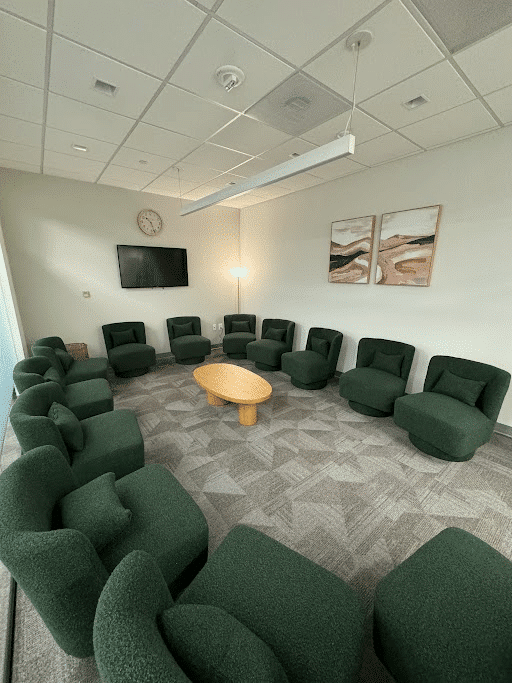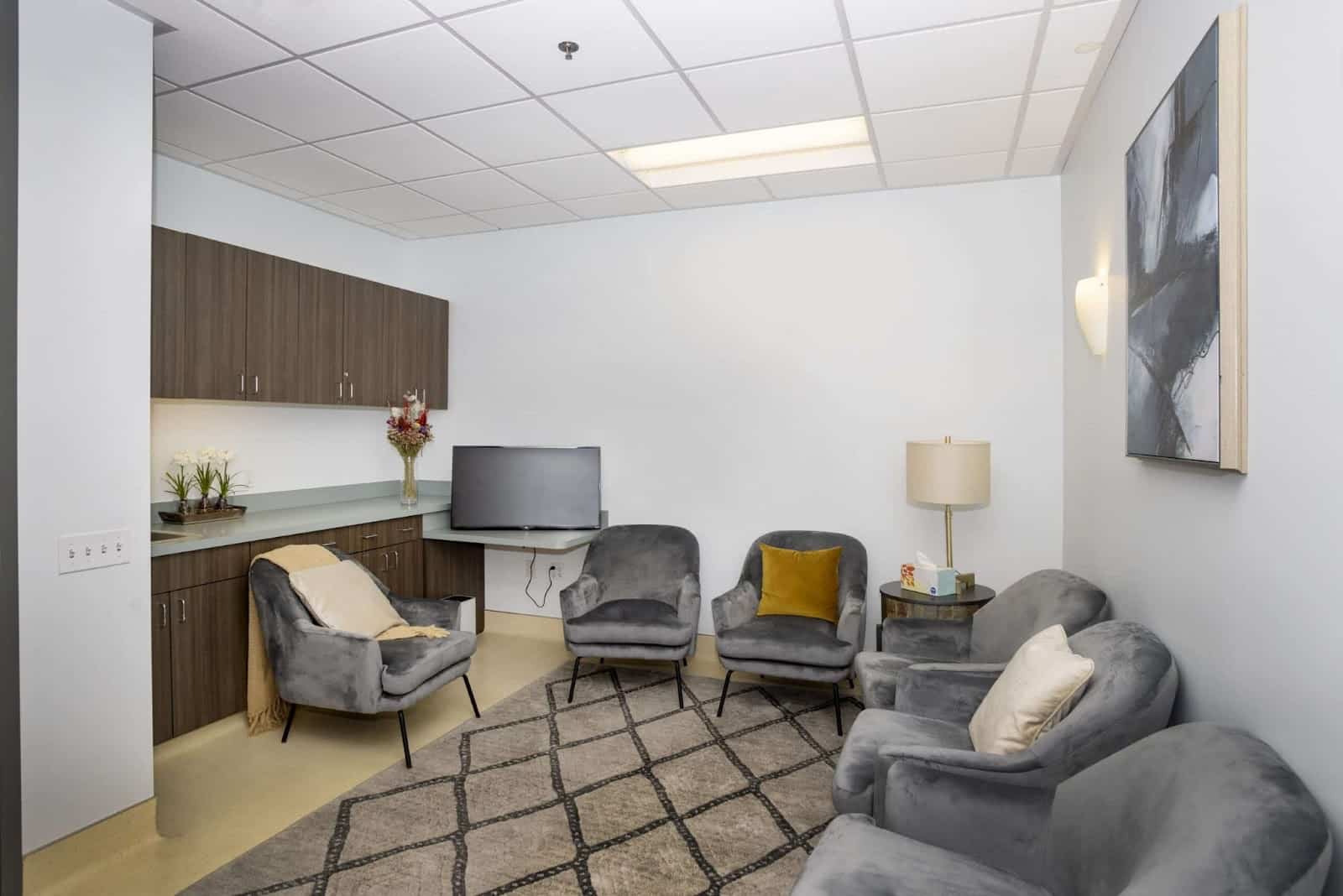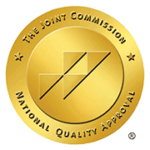Key Takeaways
- Outpatient therapy in Virginia offers flexible treatment options for individuals with mild to moderate mental health conditions.
- Common therapeutic techniques include Cognitive Behavioral Therapy (CBT), group therapy, and medication management.
- Choosing the right therapy center involves considering location, services offered, and insurance coverage.
- At Mission Connection, we develop personalized treatment plans using various therapeutic approaches including CBT, DBT, and mindfulness to target specific mental health symptoms.
What Is Outpatient Treatment?
Outpatient treatment is a form of therapy where you receive care without being admitted to a hospital. Unlike inpatient treatment, outpatient care allows you to continue with your daily life while attending scheduled therapy sessions. This flexibility makes it an attractive option for many people seeking mental health or treatment.
Benefits of Outpatient Care
Outpatient therapy offers you the ability to maintain your normal routine. You can continue working, attending school, or taking care of your family while receiving treatment. This makes it easier to integrate therapy into your life without major disruptions.
Another benefit is cost – outpatient therapy is generally more affordable than inpatient treatment because you do not incur the costs associated with overnight stays at a facility. This makes it a more accessible option for many people.

Who Can Benefit?
Outpatient therapy is suitable for those with mild to moderate mental health conditions such as anxiety, depression, or stress-related disorders. If you have a strong support system at home and are motivated to participate in therapy, outpatient treatment can be highly effective.
| Mission Connection: Outpatient Mental Health Support Mission Connection offers flexible outpatient care for adults needing more than weekly therapy. Our in-person and telehealth programs include individual, group, and experiential therapy, along with psychiatric care and medication management. We treat anxiety, depression, trauma, and bipolar disorder using evidence-based approaches like CBT, DBT, mindfulness, and trauma-focused therapies. Designed to fit into daily life, our services provide consistent support without requiring residential care. Start your recovery journey with Mission Connection today! |
Types of Outpatient Therapy Centers
Mental Health Clinics
Mental health clinics provide a range of services like individual therapy, group therapy, and medication management for individuals dealing with mental health issues. Therapists at these clinics are trained to address conditions like depression, anxiety, bipolar disorder, and more.
At a mental health clinic, you can expect a personalized treatment plan tailored to your specific needs. The goal is to help you manage your symptoms and improve your overall well-being. Clinics may also offer workshops and support groups to enhance your treatment experience.
Specialized Treatment Centers
Specialized treatment centers focus exclusively on specific conditions or demographics, allowing them to develop deep expertise in particular treatment areas. For example, eating disorder clinics might offer nutritional counseling alongside psychological treatment, while trauma centers may employ specialists in EMDR and somatic therapies.
These centers often feature customized environments and protocols designed specifically for their target population, with staff who have advanced training and certification in specialized treatment modalities.
Telehealth/Online Therapy Centers
Telehealth/online therapy centers specialize in delivering mental health services entirely through digital platforms. Secure video conferencing, messaging, and specialized therapy apps provide convenient access to care without geographic limitations.
Many centers also offer extended hours, shorter wait times, and more flexible scheduling options than traditional in-person centers.
They’ve become increasingly sophisticated, incorporating digital tools for mood tracking, homework assignments, and interactive online talk therapy exercises. Some telehealth centers focus exclusively on online delivery, while others offer hybrid models combining virtual and in-person options to maximize accessibility and continuity of care.
Key Techniques in Therapy
Cognitive Behavioral Therapy (CBT)

It focuses on identifying and changing negative thought patterns that can lead to emotional distress and problematic behaviors. By addressing these thoughts, CBT helps individuals develop healthier ways of thinking and behaving.
Eye Movement Desensitization and Reprocessing (EMDR)
EMDR is an outpatient therapy technique specifically designed for trauma recovery. EMDR uses bilateral stimulation (typically guided eye movements, but also taps or tones) while you focus on traumatic memories. This process helps your brain reprocess these memories in a way that reduces their emotional intensity.
Unlike traditional exposure therapy, EMDR doesn’t require a detailed retelling of traumatic events, making it suitable for those who find discussing trauma overwhelming.
Many Virginia outpatient centers – including Mission Connection – now offer EMDR with specially certified therapists for conditions including PTSD, anxiety, phobias, and complex trauma treatment.
Mindfulness Therapy
Mindfulness therapy involves paying deliberate attention to the present moment with an attitude of openness, curiosity, and non-judgment. As a therapeutic technique, it helps individuals develop awareness of their thoughts, feelings, bodily sensations, and surrounding environment without becoming overwhelmed by them.
Mindfulness therapy is often used to treat conditions like anxiety, depression, and stress. It helps individuals break patterns of negative thinking, develop healthier responses to difficult emotions, and improve overall well-being.
Family Therapy
Family therapy is essential for addressing issues that affect not just the individual but the entire family unit. In family therapy sessions, a therapist works with family members to explore their roles, improve communication, and resolve conflicts.
It provides a space for open communication and helps families develop strategies to support their loved ones in treatment.
Factors to Consider When Choosing a Center
Location and Accessibility
When evaluating potential centers, consider how easy it is to reach them from your home or workplace. This can impact your ability to maintain consistent attendance, which is essential for effective treatment. Accessibility is also crucial for individuals with mobility issues or those relying on public transportation.

Insurance and Financial Considerations
Check whether the center accepts your insurance plan and what out-of-pocket costs you might incur. This is how you can budget for your treatment and avoid unexpected expenses.
Some centers offer sliding scale fees based on income, making therapy more affordable for those with financial constraints.
Specialties and Services Offered
Different therapy centers may specialize in various areas of mental health or treatment. When choosing a center, consider whether its specialties align with your specific needs. For example, if you struggle with anxiety, look for a center with expertise in anxiety disorders.
Reputation and Reviews
Finally, consider the reputation of the therapy center. Reading reviews and seeking recommendations from others can provide valuable insights into the quality of care you can expect. A center with positive feedback and a strong track record of success is more likely to meet your needs effectively.

Mission Connection: Your Path to Mental Wellness in Virginia

While Virginia has various outpatient options, Mission Connection stands apart with our multidisciplinary team of licensed professionals who truly listen. Our flexible programming seamlessly integrates into your daily life, allowing you to maintain your responsibilities while receiving the support you need.
With locations in California, Virginia, and Washington, our evidence-based approach combines individual therapy, group sessions, and psychiatric support in both in-person and telehealth formats to meet you where you are.
Taking that first step toward mental wellness is an act of courage. When you’re ready, we’re here to provide safe, proven treatment that’s customized to fit your unique needs.
Frequently Asked Questions (FAQ)
How do I know if outpatient therapy is right for me?
Outpatient therapy is suitable for individuals with mild to moderate mental health conditions who do not require 24-hour care. If you have a supportive home environment and are motivated to participate in therapy, outpatient treatment can be a great fit.
How long does outpatient treatment usually last?
Outpatient treatment duration can vary based on individual needs and progress. Some people may benefit from a few months of therapy, while others may continue for a year or more. Your therapist will work with you to determine the appropriate length of treatment.
Can I switch therapy centers if needed?
Yes, you can switch therapy centers if you feel your current center isn’t meeting your needs. It’s important to find a place where you feel comfortable and supported. Discuss any concerns with your therapist before making a decision, as they may offer solutions or recommendations.
What type of treatment is offered at Mission Connection?
Mission Connection provides comprehensive outpatient mental healthcare including daily group therapy with licensed therapists, weekly psychiatric care with medication management when needed, and weekly individual therapy.
Our treatment approaches include CBT, Dialectical Behavioral Therapy (DBT), mindfulness, online talk therapy, and others all designed to address your specific mental health needs.







